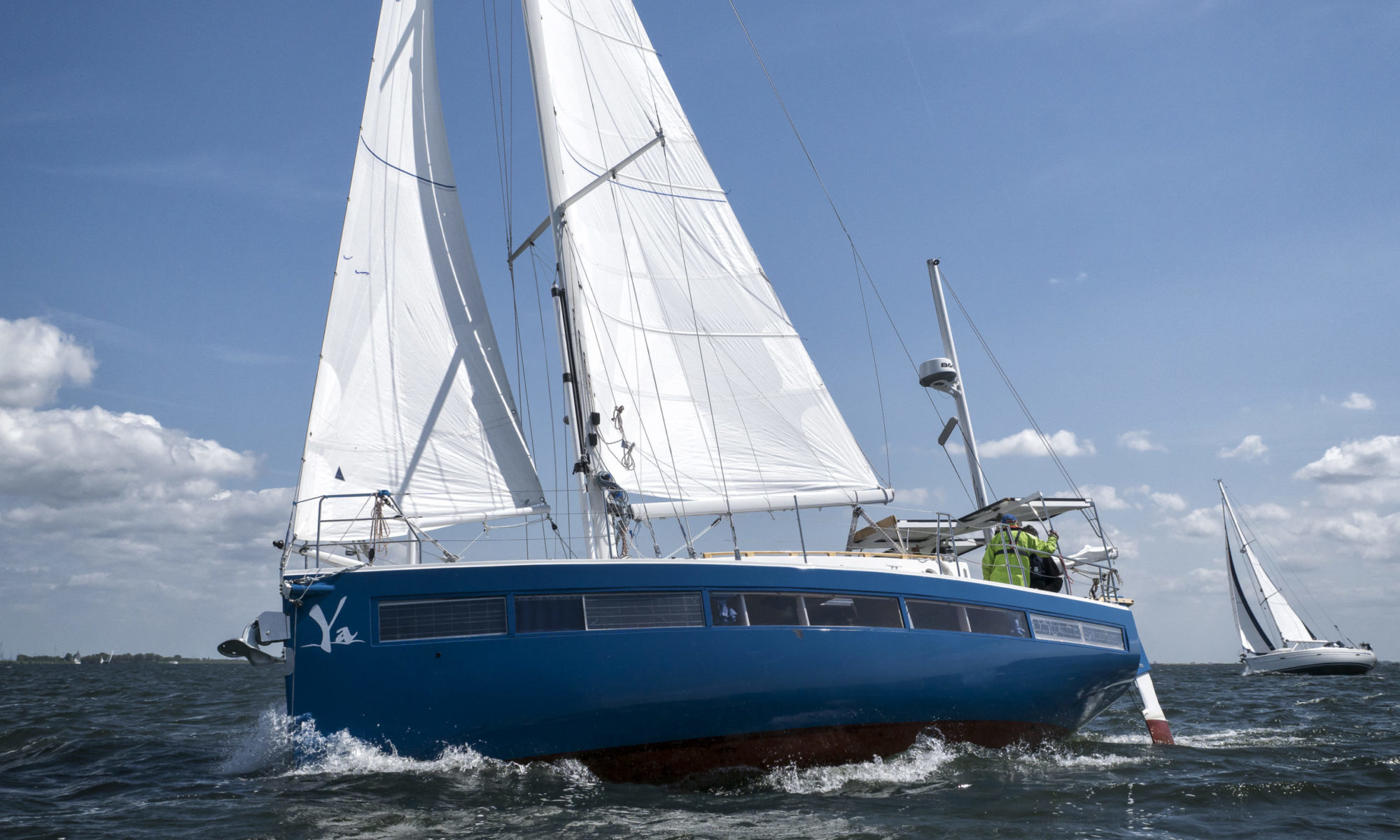One year ago we were anchored on the Guadiana river. We celebrated Christmas with 3 ‘watch skippers’. COVID restrictions were tough, you could invite only “one household”. But it is the gut feeling of solidarity among yachties that nobody should celebrate Christmas alone. So, we noted one companion in our logbook as crewmember. The other 2 formed the other “household”.
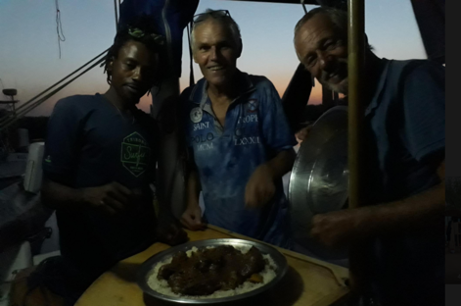
Gambia solidarity
Last month we spent in Gambia. A poor country, with half the people living under the poverty limit of 2 Euro a day. There is no state’s social security. How did they survive the lock down? A miracle? No. It comes down to one word: solidarity.
We saw how this works in Lamin Lodge. There were not enough yachts for the service men living from it. But instead of hard competition, they distribute the work. Senna, a newcomer, was the lucky man to welcome Ya. He helped us greatly with cleaning Ya’s hull, advising us on where to shop, to eat, to find a laundry woman, to make better deals with taxi drivers and market sellers. He made sure we did not enter dangerous spots and he brought us fresh bread every morning.
After three days we asked what it costs, and he answers: “You just give from the heart.”
After he was paid, he cooked for the whole ‘gang’ of service men. The mobile solar power bank we gave him, he shares with his buddies. It is the solidarity that makes this community united, and therefore strong.
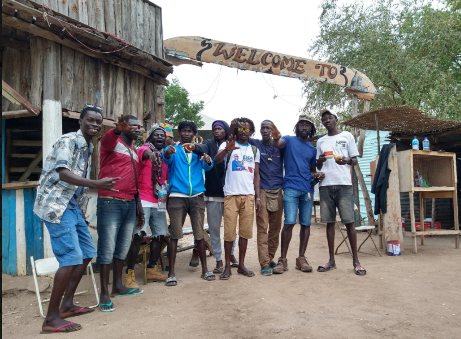
A call for global solidarity
Let is go back to 1987. After 4 years of work, a new report by the World Commission on Environment and Development (WCED) came out. This UN Commission was presided by the Norwegian Mrs. Brundtland. She invited members of developed and developing countries of the world. Their final report was called ‘Our Common Future’, but many still call it the ‘Brundtland Report’. It stated that critical global environmental problems were mainly the result of the enormous poverty of the South and the non-sustainable patterns of consumption and production in the North. The Brundtland Committee called for a sustainable development. This means, a social and economic development for all, with respect for the environment. That way, it would not compromise the future environment for the next generations, especially in the poor countries. The Brundtland Commission simply said: we globalize our society, so let us globalize our solidarity. That was 1987. But two years later the Berlin Wall fell, and we all saw that as the victory competition . So, solidarity was set aside.
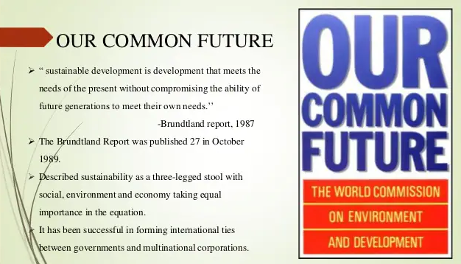
Now, sustainable development is the key principle in many countries policy documents. This means, social and economic development for all of us, and with respect for the environment and for our future generations.
COVID and solidarity
And now 2021. The world suffers from COVID. The cause lies in our globalized world, and the dense traffic gives viruses every opportunity to spread quickly. New Zealand, China, Korea and Taiwan could stop it. Democratic or totalitarian organisation did not seem to matter. But each of these countries acted relentlessly united; key was the solidarity in each country.
But solidarity within countries is not enough in our globalized world. In January this year the World Health Organization wrote an alarming report. Most countries took 90% of the necessary measurements, although a ‘leak’ of 1% is plenty for a virus to spread. In most countries, governments took action after procedures, which cost up to 10 days. In terms of virology, 24 hours is already long. So, the virus spread. The WHO created COVAX, the organization to distribute the vaccines to all countries. Did the countries of the world unite in solidarity to kill the virus? Well, the Western countries did promise support to COVAX, but then purchased 3.18 billion vaccines, each at their own account. Source
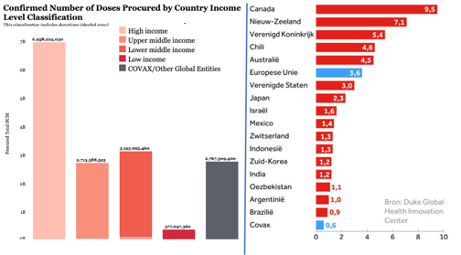
These overdoses were driven by competition. The pandemic got worse. And yes, the Delta was a first mutant. Rich countries reacted defensively with ‘an extra booster’ for the population within their borders, and that was it. So, a second mutant came, the Omicron. And it is no rocket science to predict that this will continue endlessly.
Professor M. Koopmans, one of the international top virologists says: “Yes a country can beat down the next wave, but (…) then, new mutants will develop. They can be worse or less bad, we don’t know.” She says there is only one solution: “One health, on global level.” The journalists wrote down: “Whatever question we raised, it always came down to one word: solidarity.” Source Koopmans agreed from her virologist’s perspective: “Yes, solidarity, and on global scale.”
You know why solidarity is so important? Because it is at each individual’s best interest.
We wish you a 2022 and many more years with a daily and passionate solidarity.
